33 start with U start with U
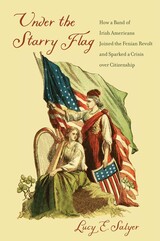
Winner of the Myrna F. Bernath Book Award
“A stunning accomplishment…As the Trump administration works to expatriate naturalized U.S. citizens, understanding the history of individual rights and state power at the heart of Under the Starry Flag could not be more important.”
—Passport
“A brilliant piece of historical writing as well as a real page-turner. Salyer seamlessly integrates analysis of big, complicated historical questions—allegiance, naturalization, citizenship, politics, diplomacy, race, and gender—into a gripping narrative.”
—Kevin Kenny, author of The American Irish
In 1867 forty Irish American freedom fighters, outfitted with guns and ammunition, sailed to Ireland to join the effort to end British rule. They were arrested for treason as soon as they landed. The Fenians, as they were called, claimed to be American citizens, but British authorities insisted that they remained British subjects. Following the Civil War, the Fenian crisis dramatized the question of whether citizenship should be considered an inalienable right.
This gripping legal saga, a prelude to today’s immigration battles, raises important questions about immigration, citizenship, and who deserves to be protected by the law.
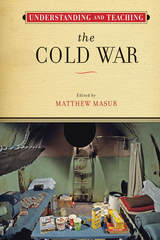
Teaching the Cold War is both necessary and challenging. Understanding and Teaching the Cold War is designed to help collegiate and high school teachers navigate the complexity of the topic, integrate up-to-date research and concepts into their classes, and use strategies and tools that make this important history meaningful to students.
The volume opens with Matthew Masur’s overview of models for approaching the subject, whether in survey courses or seminars. Two prominent historians, Carole Fink and Warren Cohen, offer accounts of their experience as longtime scholars and teachers of the Cold War from European and Asian perspectives. Sixteen essays dig into themes including the origins and end of the conflict, nuclear weapons, diplomacy, propaganda, fear, popular culture, and civil rights, as well as the Cold War in Eastern Europe, Western Europe, East Asia, Africa, Latin America, and the nonaligned nations. A final section provides practical advice for using relevant, accessible primary sources to implement the teaching ideas suggested in this book.

Choice 1997 Outstanding Academic Book
Why have some traditional cold warriors opposed involvement in Iraq and the former Yugoslavia, while many vocal critics of the Vietnam war supported the use of U.S. forces in Somalia, Haiti, and the Balkans? What do these debates tell us about American attitudes toward the use of military force to achieve foreign policy goals? The authors examine the ethical and moral underpinnings of U.S. international relations by exploring the attitudes of decision makers and foreign policy elites toward war. Their unique contribution is to bring together the various doctrines in the literature and to characterize them using behavioral methodologies, in an attempt to bring normative questions back into the mainstream of political science.
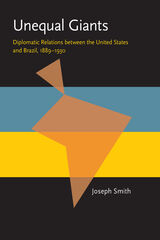
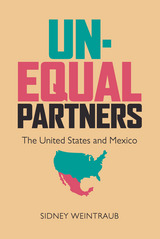
In Unequal Partners, Sidney Weintraubexamines the current relationship of Mexico and the United States as one of sustained dependence and dominance. The chapters examine the consequences of this imbalance in six major policy areas: trade; investment and finance; narcotics; energy; migration; and the border. The book begins in 1954 when the Mexican “growth miracle” was at its apex, and proceeds to the present. Special attention is paid to the post-1982 debt crisis era, when Mexico began a more outward-looking trade policy.
As this study reveals, Mexico has often been its own worst enemy in foreign relations. Over the past thirty years, the country has been plagued by debt, currency fluctuations, tax collection problems, political corruption, and state-controlled business monopolies that block foreign investment and importation. These factors have created an environment of instability, damaged outside perceptions, and weakened Mexico’s bargaining position.
Weintraub considers future policy changes that would help Mexico to level the playing field. Improving the education system, he argues, will benefit nearly every other activity and institution, and opening the oil market to private investment and technology will help develop deep-water drilling and revitalize this significant export commodity. In foreign relations, Mexico must be assertive—as it has been in easing U.S. restrictions on goods traded through NAFTA, and demanding U.S. aid to fight drug cartels—not passive, as it currently is on U.S. anti-immigration policy and the proposed border wall. Perhaps most importantly, the study points to the deeper development of policies that are proactive and outward looking.

Ayukawa Yoshisuke (1880–1967) was the founder of the Nissan conglomerate and the leader of the Manchuria Industrial Development Corporation, one of the linchpins of Imperial Japan’s efforts to economically exploit its overseas dependencies. Despite his close association with the Japanese government from the 1920s to the 1950s, Ayukawa was a proponent of free trade and global economic interdependence. He sought to lessen state control of Japan’s economy by trying to attract foreign—especially American—capital and technology in the years surrounding World War II.
In the postwar era in particular, Ayukawa actively pushed the growth of small- and medium-sized firms, yet his efforts were ultimately unsuccessful. In Unfinished Business, through exploring the reasons for Ayukawa’s failure, Haruo Iguchi illuminates many of the economic problems of today’s Japan.

Cooley marshals a wealth of evidence - from the assassination of Sadat, the destabilisation of Algeria and Chechnya and the emergence of the Taliban, to the bombings of the World Trade Center and the US embassies in Africa. He examines the crucial role of Pakistan’s military intelligence organisation; uncovers China’s involvement and its aftermath; the extent of Saudi financial support; the role of 'America's most wanted man' Osama bin Laden; the BCCI connection; the CIA's cynical promotion of drug traffic in the Golden Crescent; the events in Pakistan since the military coup of October 1999; and, finally, the events of September 11th 2001 and their continuing impact on world affairs.
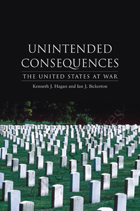
“The United States does not do nation building,” claimed Secretary of Defense Donald Rumsfeld three years ago. Yet what are we to make of the American military bases in Korea? Why do American warships patrol the Somali coastline? And perhaps most significantly, why are fourteen “enduring bases” being built in Iraq? In every major foreign war fought by United States in the last century, the repercussions of the American presence have been felt long after the last Marine has left. Kenneth J. Hagan and Ian J. Bickerton argue here that, despite adamant protests from the military and government alike, nation building and occupation are indeed hallmarks—and unintended consequences—of American warmaking.
In this timely, groundbreaking study, the authors examine ten major wars fought by the United States, from the Revolutionary War to the ongoing Iraq War, and analyze the conflicts’ unintended consequences. These unexpected outcomes, Unintended Consequences persuasively demonstrates, stemmed from ill-informed decisions made at critical junctures and the surprisingly similar crises that emerged at the end of formal fighting. As a result, war did not end with treaties or withdrawn troops. Instead, time after time, the United States became inextricably involved in the issues of the defeated country, committing itself to the chaotic aftermath that often completely subverted the intended purposes of war.
Stunningly, Unintended Consequences contends that the vast majority of wars launched by the United States were unnecessary, avoidable, and catastrophically unpredictable. In a stark challenge to accepted scholarship, the authors show that the wars’ unintended consequences far outweighed the initial calculated goals, and thus forced cataclysmic shifts in American domestic and foreign policy.
A must-read for anyone concerned with the past, present, or future of American defense, Unintended Consequences offers a provocative perspective on the current predicament in Iraq and the conflicts sure to loom ahead of us.
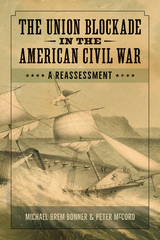
Swashbuckling stories of the Union naval blockade of the Southern states and the blockade runners who smuggled goods to the Confederacy have long been a part of the romanticized image of the Civil War. Throughout the war, Lincoln’s blockade and attempts to breach it touched nearly every aspect of the war effort. The Union prevented crucial material from reaching Confederate forces, while blockade runners smuggled hundreds of thousands of guns to rebel armies. No other military campaign lasted as long or had as many long-term consequences on the outcome of the Civil War.
Covering more than three thousand miles of Southern coastline and employing the services of 100,000 sailors, the blockade was a massive undertaking largely dictated by two Atlantic powers: Great Britain and the United States. Michael Bonner and Peter McCord build on the extensive scholarship of the blockade and incorporate previously unexamined British primary sources to deliver a fresh analysis of the Union blockade, blockade-running, and a reassessment of the blockade’s effectiveness. Their multifaceted study reassesses several key aspects of a “critical component of Union strategy,” including diplomatic and legal issues and the significance of the Confederacy’s reliance on European supplies to sustain the war effort.
The authors present statistics showing that the blockade was not nearly as effective as is commonly believed; moreover, its successes against steam-powered blockade runners actually decreased as the war went on. The diversity and comprehensiveness of coverage makes The Union Blockade in the American Civil War an essential work for Civil War historians and students.
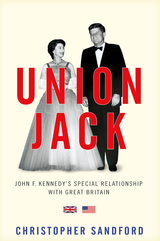

In the mid-1950s, as part of Tokyo's goal of reinstating Japan as a full member of the international community, Japan sought and gained admittance to the United Nations. Since then, it has been a proactive member and a generous financial contributor to the organization. This study focuses on postwar Japan's foreign policy making in the political and security areas, the core UN missions. It analyzes these two policy arenas from three perspectives—international political structure, domestic political organization, and the psychology of policymakers.
The intent is to illustrate how policy goals forged by national security concerns, domestic politics, and psychological needs gave shape to Japan's complicated and sometimes incongruous policy toward the UN since World War II. In contrast to the usual emphasis on the role of the foreign-policy bureaucracy, however, the author argues that we must view the bureaucracy as functioning within a larger framework of party politics and interactions among government agencies, political parties, and other actors associated with these parties. The last part of the book addresses the psychological aspect of Japan's UN policymaking in an effort to elucidate the role of national prestige in generating Japanese policy toward the UN.

The United States and China is the first comprehensive study in English of the tumultuous history of Sino-American relations from a Chinese perspective. Jiang critically examines U.S. foreign policy toward China from the eighteenth century to the Reagan-Deng years, illustrating how America's presence, influence, and pressure have shaped the history and politics of China. At the same time, Jiang's account is an illuminating and insightful synthesis of Chinese historiography since 1949—history as it has been taught in the People's Republic of China.

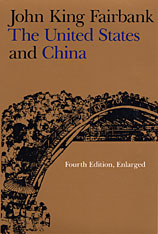
For two generations scholars and general readers have looked to John King Fairbank’s The United States and China for knowledge and insights about China. In this fourth edition, enlarged, he includes a new preface and an epilogue that brings the book up to date through the events of 1982. He has also updated the vast bibliography and both indexes. This book stands almost alone as a history of China, an analysis of Chinese society, and an account of Sino–American relations, all in brief compass.
The older portions of the book still sparkle, and they have been refined by the latest scholarship and the author’s own observations in the People’s Republic of China. And many photographs, especially chosen by John and Wilma Fairbank, show a changing land and its inhabitants.
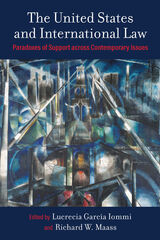
The United States spearheaded the creation of many international organizations and treaties after World War II and maintains a strong record of compliance across several issue areas, yet it also refuses to ratify major international conventions like the UN Convention on the Law of the Sea and the Convention on the Elimination of All Forms of Discrimination Against Women. Why does the U.S. often seem to support international law in one way while neglecting or even violating it in another?
The United States and International Law: Paradoxes of Support across Contemporary Issues analyzes the seemingly inconsistent U.S. relationship with international law by identifying five types of state support for international law: leadership, consent, internalization, compliance, and enforcement. Each follows different logics and entails unique costs and incentives. Accordingly, the fact that a state engages in one form of support does not presuppose that it will do so across the board. This volume examines how and why the U.S. has engaged in each form of support across twelve issue areas that are central to 20th- and 21st-century U.S. foreign policy: conquest, world courts, war, nuclear proliferation, trade, human rights, war crimes, torture, targeted killing, maritime law, the environment, and cybersecurity. In addition to offering rich substantive discussions of U.S. foreign policy, their findings reveal patterns across the U.S. relationship with international law that shed light on behavior that often seems paradoxical at best, hypocritical at worst. The results help us understand why the United States engages with international law as it does, the legacies of the Trump administration, and what we should expect from the United States under the Biden administration and beyond.
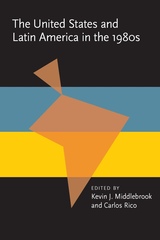

The end of the Cold War removed hemispheric security from the top of the agenda of U.S.–Latin American relations. Democracy, trade and investment, drugs, and migration rose in importance. Pressures to eliminate the anachronistic U.S. embargo on Cuba increased. The new agenda also includes Latin America’s growing ties to the countries of the European Union and other regions.
This book contains fifteen essays by distinguished U.S., Latin American, and European scholars on each of these issues, framed by overviews of the changing historical context from the nineteenth century to the end of the Cold War. Authors include such notables as Harvard scholars John Coatsworth, Jorge Domínguez, and Marcelo Suárez-Orozco; European academics such as editors James Dunkerley and Victor Bulmer-Thomas; and Latin American intellectuals such as Eduardo Gamarra and Rodolfo Cerdas-Cruz.

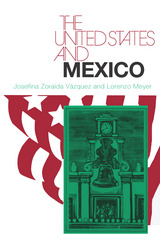

The United States and Poland adds a new dimension to the scholarship of America's international relations. Piotr Wandycz presents a comprehensive picture of the changing relationships between the United States and Poland over two hundred years.
This work is, as Wandycz writes, both a survey and a synthesis. Because he believes that an understanding of the history of Poland is necessary in order to appreciate the complex nature of its involvement with the United States, he provides a thorough analysis of Poland's internal development, concentrating on the twentieth century. He also carefully places American-Polish history in the broader context of changing East-West relations. Finally, he speculates on the future between the two countries as detente unfolds and surprising happenings like the election of a Polish Pope occur.
Ultimately, Wandycz acknowledges, the American-Polish relationship has been one-sided, even more so than is normal in contacts between great and small powers. “One must not imagine,” he writes, “that Poland has been on the minds of American foreign policy makers consistently...but if one thinks of Poland in the context of East Central Europe, her significance increases dramatically.” This book provides a necessary history and evaluation of a nation state once dominant in Europe and now searching for an appropriate role.
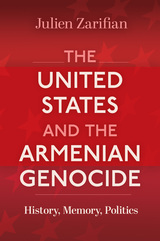
This is the first book to examine how and why the United States refused to acknowledge the Armenian Genocide until the early 2020s. Although the American government expressed sympathy towards the plight of the Armenians in the 1910s and 1920s, historian Julien Zarifian explores how, from the 1960s, a set of geopolitical and institutional factors soon led the United States to adopt a policy of genocide non-recognition which it would cling to for over fifty years, through Republican and Democratic administrations alike. He describes the forces on each side of this issue: activists from the US Armenian diaspora and their allies, challenging Cold War statesmen worried about alienating NATO ally Turkey and dealing with a widespread American reluctance to directly confront the horrors of the past. Drawing from congressional records, rare newspapers, and interviews with lobbyists and decision-makers, he reveals how genocide recognition became such a complex, politically sensitive issue.
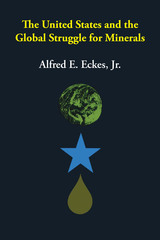
In 1973–1974 soaring commodity prices and an oil embargo alerted Americans to the twin dangers of resource exhaustion and dependence on unreliable foreign materials suppliers. This period seemed to mark a watershed in history as the United States shifted from the era of relative resource abundance to relative materials scarcity.
Alfred E. Eckes’s comprehensive study shows that resource depletion and supply dislocations are not concerns unique to the 1970s. Since 1914, the quest for secure and stable supplies of industrial materials has been an important underlying theme of international relations and American diplomacy.
Although the United States has been blessed with a diversified materials base, it has pursued a minerals strategy designed to exploit low-cost, high-quality ores abroad. Eckes demonstrates how this policy has led to official protection for overseas private investments, involving a role for the Central Intelligence Agency.
Some modern historians have neglected the importance of resources in shaping diplomacy and history. This book, based on a vast variety of unutilized archival collections and recently declassified government documents, helps to correct that imbalance. In the process it illuminates an important and still timely aspect of America’s global interests.

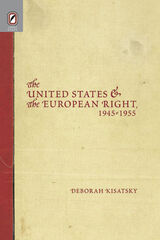
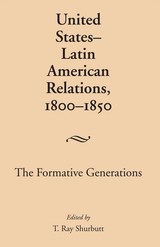
Relations between the United States and the countries of Latin America have been characterized by misunderstandings based on language and culture, a lack of sustained commitment on the part of the United States, and, in some cases, incompetent diplomats. During the era when many of the Latin American countries discarded the yoke of colonial status, the young United States attempted to define itself culturally, economically, constitutionally, geographically, and diplomatically. As Latin American emerged from the crucible of revolution and international power politics, it was affected by—and in varying degrees affected—the United States and its desired position of leadership in the Western Hemisphere.
To make sense of these relationships, this volume concentrates on Central America, Peru, Colombia, Argentina, Brazil, Chile, and Mexico. Describing the particular paths taken by each of the formation of relations with the United States, Shurbutt and his colleagues focus on the American diplomatic community and its effectiveness in tense political situations.
Contributors in addition to the editor include Lawrence A. Clayton, Paul B. Goodwin, Eugene R. Huck, Phil Brian Johnson, Edward H. Moseley, Wesley P. Newton, Charles S. Stansifer, and Robert Kim Stevens.
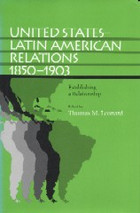
During the second half of the 19th century several forces in the United States, Latin America, and Europe converged to set the stage for the establishment of a more permanent relationship between the United States and Latin America. The key factors--security, economics, and modernization--created both commonalities and conflicts between and among regions. In this volume, scholars examine not only the domestic but also the geopolitical forces that encouraged and guided development of diplomatic relations in this rapidly changing period.
As the contributors note, by the end of the century, economic interests dominated the relationship that eventually developed. This period saw the building of a string of U.S. naval bases in Latin America and the Caribbean, the rapid industrialization of the United States and the development of a substantial export market, the entrance of many U.S. entrepreneurs into Latin American countries, and the first two inter-American conferences. By the century's end, the United States appeared as the dominant partner in the relationship, a perception that earned it the "imperialist" label.
This volume untangles this complex relationship by examining U.S. relations with Mexico, Cuba, Colombia, Central America, Peru, Argentina, Chile, Brazil, Uruguay, and Paraguay from the perspective of both the United States and the individual Latin American countries.
A companion volume to United States-Latin American Relations, 1800-1850: The Formative Generations, edited by T. Ray Shurbutt, this book establishes a historical perspective crucial to understanding contemporary diplomatic relations.
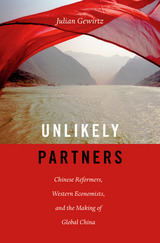
Unlikely Partners recounts the story of how Chinese politicians and intellectuals looked beyond their country’s borders for economic guidance at a key crossroads in the nation’s tumultuous twentieth century. Julian Gewirtz offers a dramatic tale of competition for influence between reformers and hardline conservatives during the Deng Xiaoping era, bringing to light China’s productive exchanges with the West.
When Mao Zedong died in 1976, his successors seized the opportunity to reassess the wisdom of China’s rigid commitment to Marxist doctrine. With Deng Xiaoping’s blessing, China’s economic gurus scoured the globe for fresh ideas that would put China on the path to domestic prosperity and ultimately global economic power. Leading foreign economists accepted invitations to visit China to share their expertise, while Chinese delegations traveled to the United States, Hungary, Great Britain, West Germany, Brazil, and other countries to examine new ideas. Chinese economists partnered with an array of brilliant thinkers, including Nobel Prize winners, World Bank officials, battle-scarred veterans of Eastern Europe’s economic struggles, and blunt-speaking free-market fundamentalists.
Nevertheless, the push from China’s senior leadership to implement economic reforms did not go unchallenged, nor has the Chinese government been eager to publicize its engagement with Western-style innovations. Even today, Chinese Communists decry dangerous Western influences and officially maintain that China’s economic reinvention was the Party’s achievement alone. Unlikely Partners sets forth the truer story, which has continuing relevance for China’s complex and far-reaching relationship with the West.
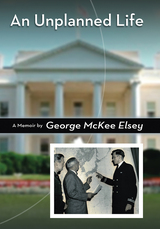
Elsey’s duties continued with Harry Truman’s succession to the presidency. He decoded the famous message from Secretary of War Henry Stimson reporting the dropping of the atomic bomb on Hiroshima and carried it to President Truman. In 1947, he shed his Naval Reserve uniform and joined the White House’s civilian staff as assistant to the special counsel to the president. In 1949, he became administrative assistant to the president, and, in 1952, he became a member of the Mutual Security Agency staff. During those years, he grew very close to Harry Truman, and thus, a major portion of An Unplanned Life relates to his experiences then.
In the first postwar winter, Elsey was frequently the only staff member who accompanied President Truman on the USS Williamsburg. In September 1946, Elsey submitted a report to Truman on U.S.-Soviet relations, which came to be well known as the “Clifford-Elsey Report.” Providing Truman with notes for some two hundred of his “back-of-the-train” informal talks, Elsey played a part in the best remembered feature of the “Whistle-Stop Campaign” that resulted in “the political upset of the century.” In addition to his years at the White House, Elsey also touches on his post–White House years—his time in private industry, his months with Clark Clifford when Clifford was trying unsuccessfully to extricate America from Vietnam, and his long association with the American Red Cross.
An Unplanned Life is a fascinating look at the life of an extraordinary individual who played an important and unprecedented part in two different presidents’ decisions and affected the course of our nation. Anyone with an interest in history will find this memoir fascinating and invaluable.
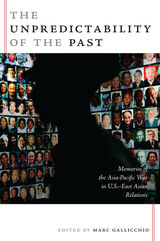
The contributors interpret mass media sources, museum displays, monuments, film, and literature, as well as the archival sources traditionally used by historians. They explore how American ideas about Japanese history shaped U.S. occupation policy following Japan’s surrender in 1945, and how memories of the Asia-Pacific War influenced Washington and Tokyo policymakers’ reactions to the postwar rise of Soviet power. They investigate topics from the resurgence of Pearl Harbor images in the U.S. media in the decade before September 11, 2001, to the role of Chinese war museums both within China and in Chinese-Japanese relations, and from the controversy over the Smithsonian Institution’s Enola Gay exhibit to Japanese tourists’ reactions to the USS Arizona memorial at Pearl Harbor. One contributor traces how a narrative commemorating African Americans’ military service during World War II eclipsed the history of their significant early-twentieth-century appreciation of Japan as an ally in the fight against white supremacy. Another looks at the growing recognition and acknowledgment in both the United States and Japan of the Chinese dimension of World War II. By focusing on how memories of the Asia-Pacific War have been contested, imposed, resisted, distorted, and revised, The Unpredictability of the Past demonstrates the crucial role that interpretations of the past play in the present.
Contributors. Marc Gallicchio, Waldo Heinrichs, Haruo Iguchi, Xiaohua Ma, Frank Ninkovich, Emily S. Rosenberg, Takuya Sasaki, Yujin Yaguchi, Daqing Yang

Riaz M. Khan, a senior Pakistani diplomat, participated actively in all meetings on Afghanistan in the United Nations, the Non-Aligned Movement, and the Organization of the Islamic Conference, and in all of the Geneva negotiating rounds (1882–1988). Drawing upon his personal experience, official documents, scholarly literature, and press accounts, he provides a unique insider’s view of these precedent-setting negotiations, which were often shrouded in secrecy and misperceptions.
Khan examines the interests, positions, and behind-the-scenes maneuverings of the major players—Afghan governments and resistance groups, Pakistan, the Soviet Union, the United States, and UN mediators—and assesses the impact of military and political developments inside Afghanistan and elsewhere, including the advent of Mikhail Gorbachev. Khan’s authoritative account of these critical diplomatic initiatives sheds important light on the internal dynamics of the multilateral Afghanistan negotiations.
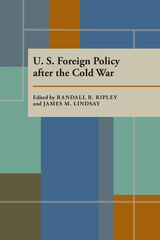
The cold war came to a grinding halt during the astounding developments of 1989-1991. The Berlin Wall fell, Eastern European countries freed themselves from Soviet domination, and the Soviet Union itself disintegrated after witnessing a failed coup presumably aimed at restoring a communist dictatorship. Suddenly the “evil empire” was no more, and U.S. foreign policy was forever changed. This volume explores the revisions to a variety of bureaucratic institutions and policy areas in the wake of these political upheavals.
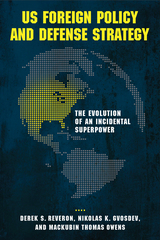
Safe from the battlefields of Europe and Asia, the United States led the post–World War II global economic recovery through international assistance and foreign direct investment. With an ardent decolonization agenda and a postwar legitimacy, the United States attempted to construct a world characterized by cooperation. When American optimism clashed with Soviet expansionism, the United States started on a path to global hegemony.
In US Foreign Policy and Defense Strategy, the authors analyze the strategic underpinnings of hegemony, assess the national security establishment that sustains dominance, consider the impact on civil-military relations, and explore the intertwining relationships between foreign policy, defense strategy, and commercial activities. Eschewing conventional analyses, the volume not only identifies drivers and continuities in foreign policy, but it also examines how the legacy of the last sixty-five years will influence future national security policy that will be characterized by US leadership in an increasingly competitive world.
From civil-military relations to finance, and from competing visions of how America should make war to its philosophy of securing peace through reconstruction and reconciliation, US Foreign Policy and Defense Strategy offers unique insights into the links between military and commercial power as it charts the rise of a historical rarity: the incidental superpower. This accessibly written book is suitable for students and general readers as well as scholars.
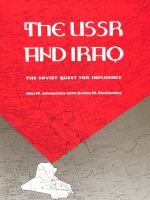
Drawing on ten years of research in Western, Arab, and Soviet sources, Smolansky analyzes the complex issues at the center of Soviet-Iraqi relations from 1968 through 1988, including the nationalization of the oil industry, the Kurdish question, the Iraqi Communist Party, the affairs of the Persian/Arabian Gulf, and, ultimately, the war between Iraq and Iran.
Smolansky concludes that Iraq has never been under the dominant influence of Moscow, nor has it even been a loyal Soviet ally. In fact, Iraq has managed to reap major benefits from the relationship without losing its autonomy or sacrificing its major interests. The author discusses the Soviet Union and Iraq within the larger framework of the nature of influence relationships between great and small powers.
READERS
Browse our collection.
PUBLISHERS
See BiblioVault's publisher services.
STUDENT SERVICES
Files for college accessibility offices.
UChicago Accessibility Resources
home | accessibility | search | about | contact us
BiblioVault ® 2001 - 2024
The University of Chicago Press









